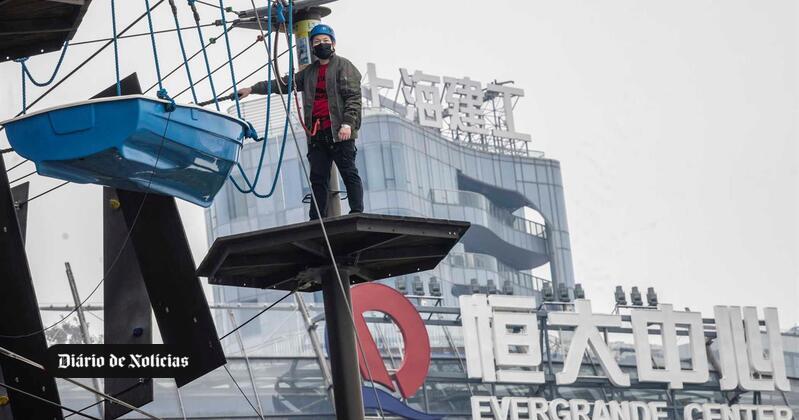Chinese real estate developer Evergrande, which faces $310 billion in debt (274 billion euros), warned Friday that it could run out of money to “meet its financial obligations.”
Chinese regulators immediately emphasized that Chinese financial markets could be shielded from significant impact.
Evergrande Group is struggling to comply with official pressure to reduce its debt, which has raised concern that a default could lead to a financial crisis.
Among economists, there is little possibility of a crisis in international markets, but banks and bondholders could incur huge losses as Beijing officials want to avoid a “bailout” of the construction company.
In a statement issued today on the Hong Kong Stock Exchange, Evergrande said that after reviewing its financial resources with external advisors, “there are no assurances that the group has sufficient funds to continue to meet its financial obligations.”
Shortly thereafter, regulators sought to placate investors, releasing statements assuring them that China’s financial system is robust and default rates are low.
They added that many property developers are financially healthy and that Beijing will continue to allow credit markets to operate.
China Capital Market Regulatory Commission stressed on its website that “the risk of contagion from group risk events in the stable performance of the capital market can be controlled.”
The central bank and the regulator made similar statements.
Beijing’s leaders over the past year have tightened controls on property developer debt levels in an effort to rein in rising corporate debt, which is seen as a threat to economic stability.
The ruling Communist Party has made reducing financial risks a priority since 2018.
In 2014, authorities allowed the first bond default since the 1949 revolution.
Defaults were allowed to occur gradually, in the hope of forcing creditors and investors to be more disciplined.
However, total corporate, government and household indebtedness rose from the equivalent of 270% of GDP in 2018 to about 300% last year, values not seen much in middle-income economies.
Economists argue that a financial crisis is unlikely, but that debt can limit economic growth.
Evergrande, the construction industry’s largest debtor, has 2 billion yuan ($310 billion) in debt, mostly owed to local banks and bond investors. It also owes $19 billion to foreign bondholders.
The company has been selling assets to pay off debt and announced plans to give some bondholders apartments on the projects it’s building.
The government said in a statement that Evergrande President Xu Jian was summoned today to meet with leaders of his Guangdong province. In the text, a government team was expected to be sent to Evergrande headquarters to help manage risks.
The Evergrande woes have sparked warnings that the financial crisis in real estate – an industry that fueled China’s explosive economic growth between 1998 and 2008 – could lead to banking problems and a sudden and politically dangerous collapse of the country’s economic growth.
Evergrande’s statement said the company was facing requests to meet the $260 million payment. And anticipate that if you are unable to comply, other creditors may have to demand payment of their installments sooner than expected.
Also today, another real estate developer, Kaisa Group Holdings Ltd. , that it may fail to repay a $400 million bond loan next week.
Kaisa said it tried to renegotiate the payment, which is due Thursday, but very few bondholders agreed to terms offered but not disclosed.
On October 5th, Fantasia Group Holdings, a mid-sized real estate developer, announced that it would lose a payment of $205.7 million due to bond investors.
Hundreds of small Chinese property developers have gone bankrupt since regulators began tightening oversight of the sector’s finances in 2017.
The slowdown in China’s construction sector dragged down economic growth numbers, with an unexpected 4.9% year-over-year growth in the third quarter.

“Wannabe internet buff. Future teen idol. Hardcore zombie guru. Gamer. Avid creator. Entrepreneur. Bacon ninja.”

